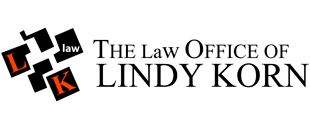Article appeared in The Daily Record, August 27, 2012
Reversing summary judgment, the Court of Appeals said that the jury may find the practical realities of a teacher’s workday bring the plaintiff’s hours far beyond the 1,250 Family and Medical Leave Act minimum, Donnelly v. Greenburgh Central School District, 11-2448-cv (Aug. 10).
The plaintiff, a former high school teacher, challenges the order of the U.S. District Court for the Southern District of New York, granting summary judgment to defendants, his former employer. The defendants contend that the plaintiff was not eligible for FMLA leave because he had only worked 1,247 hours in the preceding year, three hours fewer than the minimum required by statute, and that even if he were eligible, he has not presented a triable issue of fact regarding the FMLA retaliation claim.
In the fall of Donnelly’s third and final year of his probationary contract — during which he would be evaluated for tenure and offered or not a permanent teaching position within the district — Donnelly became ill and required gallbladder surgery. Donnelly’s surgery occurred on Nov. 27, 2006; he took leave from then through Dec. 5, 2006. Donnelly asserted in a declaration in opposition to the district’s motion for summary judgment that he and “most teachers regularly work in excess of a total of one hour before and after class,” and that he “typically worked a total of 1.5 hours before and after class every day.”
In an evaluation dated June 6, 2006, and thus within the relevant FMLA eligibility period, Chakar (principal), commented that Donnelly “arrives to work in a professional manner; early, on time and often. He stays late into the afternoon working with kids to ensure their success.”
The Court of Appeals disagreed that the CBA was determinative of the number of hours Donnelly worked by citing the regulations that provide: The determining factor is the number of hours an employee has worked for the employer within the meaning of the Fair Labor Standards Act.
The determination is not limited by methods of recordkeeping, or by compensation agreements that do not accurately reflect all of the hours an employee has worked for or been in service to the employer. Any accurate accounting of actual hours worked under the FLSA’s principles may be used, 29C.F.R. 825.110(c) (1).
The Court of Appeals held that the regulation is clear; all of the hours an employee has worked must be counted, regardless of the provisions of an employment agreement. The FMLA regulations also expressly note the common understanding that “full-time teachers … of an elementary or secondary school system … often work outside the classroom or at their homes,” 29 C.F.R. 825.110(c)(3), and that this reality informs the interpretation of FMLA eligibility.
Thus, since the CBA was not the sole means to count the plaintiff’s hours under the FMLA, the issue is for the jury. This case is noteworthy in that it clarifies and teaches us that employers must keep a detailed accounting of hours worked to determine FMLA eligibility, and that the regulations specifically provide for such when counting hours worked for teachers.



